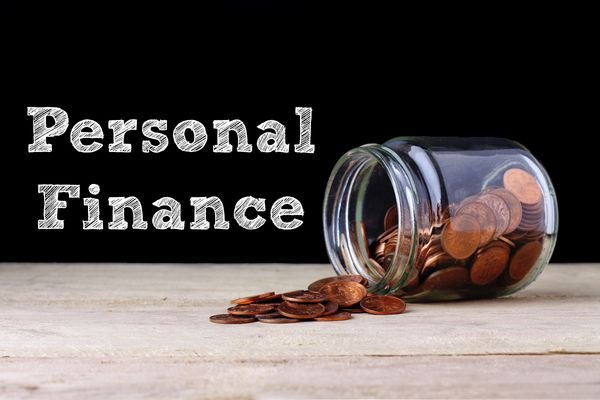Personal finance is the management of an individual’s financial activities, such as earning and spending money, saving and investing, planning for the future, etc. The amount of money someone makes isn’t as important as how they manage it to reach both short-term and long-term goals. Money is an important part of almost every decision that we make, from where to live to how you prepare for retirement. Financial literacy is important because it can help you avoid making decisions that lead to stress, debt, and instability.
Personal Finance: The Core Concept
Personal finance is fundamentally about making the best decisions you can with your resources. Personal finance involves knowing your income, expenses, and savings, as well as investments. This knowledge allows you to reduce unnecessary expenditure, build financial security, and plan effectively. Being financially secure does not mean you are wealthy. It means that you have control over your finances. A modest earner who manages his money well can be better off than a person with a higher income and poor financial habits. It is clear that personal finance is about more than just income.
Why Personal Finance is Important in Daily Life
Personal finance is important because it affects you directly. Money management is required for everything from paying bills to purchasing groceries to taking vacations and covering emergency expenses. Unexpected situations can derail your financial stability if you don’t have a plan. If you don’t have an emergency fund, an unexpected medical bill or job loss could be disastrous. A careful financial plan can help you feel confident and secure in these situations. You can achieve your goals without stress.
Budgeting and Personal Finance
Budgeting is a key aspect of personal finance. Budgeting is the process of planning your finances. It helps you to allocate income towards expenses, savings, and investments. You can control your finances, and it helps you avoid overspending. Budgeting can also help you identify areas to cut costs and redirect money towards more important goals. By reducing unneeded subscriptions and limiting dining out, you could save enough money each month to contribute to a retirement fund or build a savings account. Budgeting isn’t about limiting your lifestyle but rather about achieving balance and security.
Emergency Funds and Savings
Savings is another important part of personal finances. Savings are essential to a healthy personal finance plan. A safety net is provided by an emergency fund in situations such as medical emergencies, auto repairs, or job losses. Experts recommend that you save three to six months’ worth of living costs in an account that is easily accessible. Savings can be used to achieve larger goals, such as purchasing a home or paying for education or travel. Saving regularly, in small amounts, is a discipline that builds financial resilience.
Investing in Building Wealth
Investing in your personal finances is important because it helps you grow your money over time. Savings keep your money secure, but investing increases its value. Stocks, bonds, retirement accounts, and real estate can all generate returns to build wealth, as well as provide security. Investing requires planning and knowledge. People can lose their money if they don’t understand the risks. Personal finance education is important because it allows people to make informed decisions about how to invest their money and balance risk and reward.
Manage Debt Wisely
How you manage your debt can have a big impact on how well you manage personal finances. Student loans and mortgages are not all bad. They can be viewed as investments for the future. However, improper management of high-interest debts like credit cards can make them burdensome. Personal finance focuses on paying off high-interest debt and avoiding unnecessary borrowing. Understanding interest and how debt grows over time can help individuals make better decisions about borrowing and avoid financial traps. Responsible debt management is the foundation for long-term financial stability.
Retirement Planning is Important
Personal finance is important for many reasons. Planning early for retirement can be a great way to ensure financial security in the future. Saving and investing regularly can help individuals ensure that they will have enough money for retirement. People who do not plan properly may end up relying on government assistance or face financial problems in old age. Personal finance encourages individuals to plan for the long term and make retirement savings a priority in their financial strategy.
Financial Literacy and Confidence
Confidence is a major benefit that comes from personal finance knowledge. You will feel more in charge of your finances when you know how to manage debt and budget. Financial literacy can reduce stress and help you make better decisions. Someone with financial literacy can, for example, evaluate risks and benefits when faced with an investment or purchase opportunity. This confidence will lead to better decisions, greater security, and peace of mind. This shows that personal finances are not only about money but also about empowerment.
Conclusion
Personal finance is the art of managing your money to achieve long-term stability, security, and success. Personal finance affects all aspects of your life, including daily expenses and major goals like buying a house or planning for retirement. Understanding the basics of saving, investing, and managing debt can help individuals build resilience and reduce unnecessary financial stress. Personal finance does not revolve around how much you earn but rather how well you manage your money. Financial literacy allows people to be in control of their lives and have peace of mind.
FAQs
1. What is personal finance in simple terms?
Personal finance is how individuals manage their finances through budgeting, saving, investing, and planning for the future.
2. Why is personal finance vital?
This is because it will help you to make better financial decisions, prepare for retirement and emergencies, and avoid debt problems.
3. Budgeting is a great tool for personal finance.
Budgeting allows you to control your spending and save more money. It also ensures that your money is spent on your goals, not wasted.
4. What is the difference between saving and investing?
Investing allows you to earn money over time but comes with some risks.
5. When should I begin to contemplate my personal finances?
Good habits will build security for the future, regardless of your age or income.




